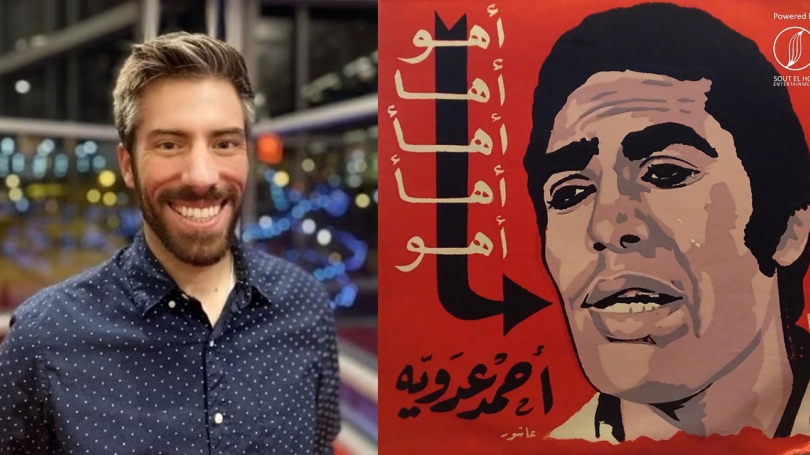
- Undergraduate
- Foreign Study
- News & Events
- People
Back to Top Nav
Back to Top Nav
"Short, infectious and full of energy, with crisp vocals and pared-down ensembles, the recordings contributed to a nation's changing soundtrack and the formation of a new musical genre: shaabi."
Historian of media, popular culture, and the Middle East, and Senior Lecturer at Dartmouth, Professor Andrew Simon's article titled The Making and Mourning of Ahmad Adawiya, a Musical Legend features in New Lines Magazine.
The article offers a historical case study tracing the rise of Ahmad Adawiya, the Egyptian legendary singer who was banned from the airwaves and offers an exploration of how the cassette allowed him to circumvent social institutions and sell directly to his audience.
In 1976, Adawiya, now a household name, achieved the accolade of making the top-selling tape in all of Egypt. But he was nowhere to be found on Egyptian radio. When officials from a series of leading stations publicly ranked singers in a popular magazine in 1975, acknowledging how they afforded the most airtime to "first-class" artists like Umm Kulthum and Abdel Wahab, Adawiya's name was not even part of the conversation. Yet he was everywhere, and most Egyptians were familiar with his music, with cassettes carrying his voice near and far beyond the reach of cultural gatekeepers who sought to stifle him.
To learn more about the fascinating musical legacy of Adawiya, cassette culture in Modern Egypt, and contemporary attempts to archive acoustic culture across the Middle East, read the full article here.